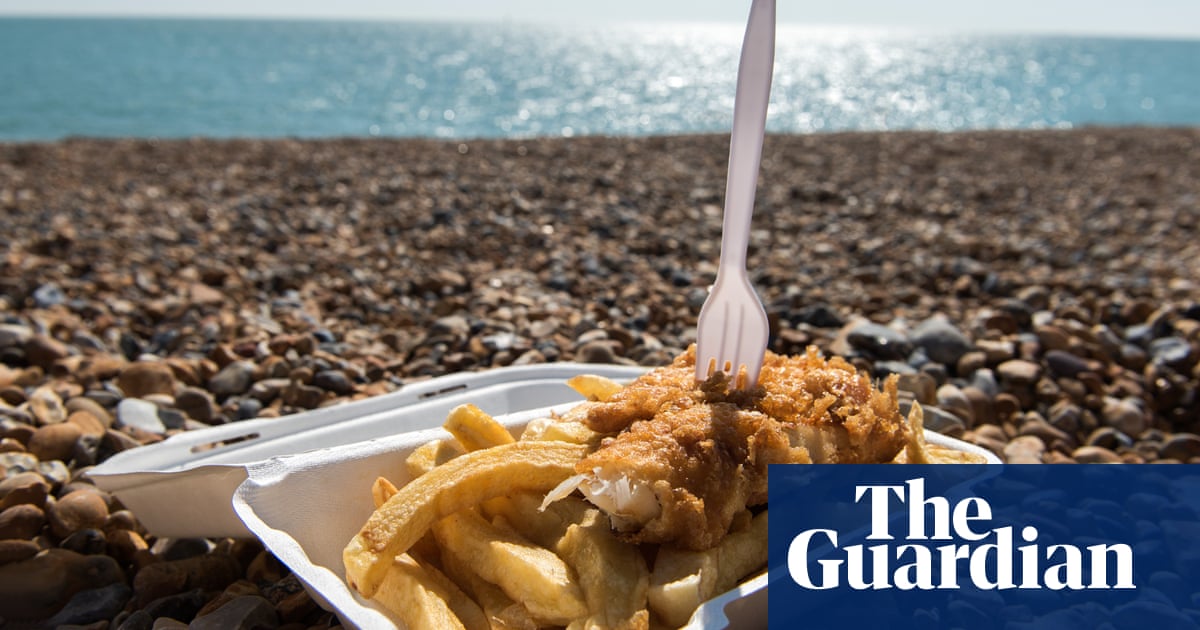The Decline of Britain's Fish and Chip Shops
핵심 개념
Rising costs, energy bills, and changing consumer habits threaten the survival of traditional fish and chip shops in the UK.
초록
The article delves into the struggles faced by traditional fish and chip shops in the UK, focusing on three specific businesses in the East Neuk region. Rising prices due to global events like war in Ukraine and Brexit have led to closures, with owners grappling with increasing energy costs. The narrative follows the personal stories of individuals like Richard Murray, Ian Fleming, and Graham Forbes as they navigate challenges such as fires, insurance rejections, and declining business. The closure of iconic establishments like the Pittenweem Fish Bar highlights the cultural significance of these eateries within their communities.
요약 맞춤 설정
AI로 다시 쓰기
인용 생성
소스 번역
다른 언어로
마인드맵 생성
소스 콘텐츠 기반
소스 방문
www.theguardian.com
A funeral for fish and chips: why are Britain’s chippies disappearing?
통계
War in Ukraine coupled with ongoing complications from Brexit had driven up prices of almost all goods that fish and chip shops depended on.
A trade association warned of a potential "extinction event" for as many as a third of the UK’s 10,500 fish and chip shops.
Energy costs at one shop increased from £600 a month to £2,000 after price hikes.
The Wee Chippy refurbished after a fire despite an insurance claim rejection.
인용구
"It feels like we have no control." - Crispy Cod in Worcester
"Use us or lose us." - Popular in Dundee owner's plea to customers via Facebook
핵심 통찰 요약
by Tom Lamont 게시일 www.theguardian.com 07-20-2023
https://www.theguardian.com/food/2023/jul/20/a-funeral-for-fish-and-chips-east-neuk-fife-anstruther-scotland
더 깊은 질문
How can traditional fish and chip shops adapt to survive in an era of rising costs?
Traditional fish and chip shops can adapt to survive in the face of rising costs by implementing several strategies. Firstly, they can focus on optimizing their operations for efficiency, such as reducing waste, streamlining processes, and negotiating better deals with suppliers. This can help them lower their overall expenses without compromising on the quality of their offerings.
Secondly, diversification can be a key strategy for traditional fish and chip shops. They can consider expanding their menu to include healthier options or catering to specific dietary requirements to attract a wider customer base. Additionally, offering delivery services or introducing online ordering systems can help reach more customers and increase revenue streams.
Furthermore, embracing technology is crucial for survival in today's market. Fish and chip shops can leverage digital marketing tools to promote their business, engage with customers on social media platforms, and gather valuable feedback for improvement. Investing in energy-efficient equipment or exploring alternative cooking methods may also help reduce operational costs in the long run.
Lastly, building strong relationships with the local community is essential for sustaining a traditional fish and chip shop. Engaging with loyal customers through loyalty programs or special promotions can foster customer loyalty and generate repeat business. By staying connected with the community and adapting to changing consumer preferences while maintaining the essence of traditionality that sets them apart from other eateries.
How does cultural heritage play in preserving iconic eateries like fish and chip shops?
Cultural heritage plays a significant role in preserving iconic eateries like fish and chip shops by creating a sense of nostalgia, tradition, and authenticity that resonates with both locals and visitors alike. These establishments often serve as culinary landmarks within communities, embodying historical significance through recipes passed down through generations or unique cooking techniques that have stood the test of time.
The cultural heritage associated with fish and chips extends beyond just food; it encompasses stories of immigration, industrialization, maritime history, regional identities, family traditions - all woven into the fabric of these iconic eateries. Customers are drawn not only by the taste but also by the experience of stepping into a place steeped in history where they feel connected to something larger than themselves.
Preserving these iconic eateries becomes vital not only for maintaining culinary traditions but also for safeguarding intangible cultural heritage that reflects societal values over time. By upholding practices rooted in cultural significance - whether it's using specific ingredients sourced locally or following age-old recipes meticulously - these establishments contribute to preserving identity amidst an ever-changing gastronomic landscape.
How do personal narratives from owners impact public perception of struggling businesses?
Personal narratives from owners play a crucial role in shaping public perception of struggling businesses by humanizing their challenges while highlighting their dedication towards keeping their establishments alive despite adversities.
When owners share stories about how they started their businesses against all odds or recount moments when they almost gave up but persevered due to passion alone creates empathy among customers who then view these places not just as commercial entities but as labor-of-love ventures worth supporting.
Moreover personal anecdotes about familial ties attached to businesses evoke emotions among patrons making them feel emotionally invested leading them visit more frequently recommend others thereby boosting footfall
Additionally sharing struggles openly helps build transparency trust between owners consumers fostering stronger relationships based mutual understanding support
Ultimately personal narratives add layers depth character struggling businesses transforming mere transactional interactions meaningful connections resonate deeply hearts minds individuals involved
0
